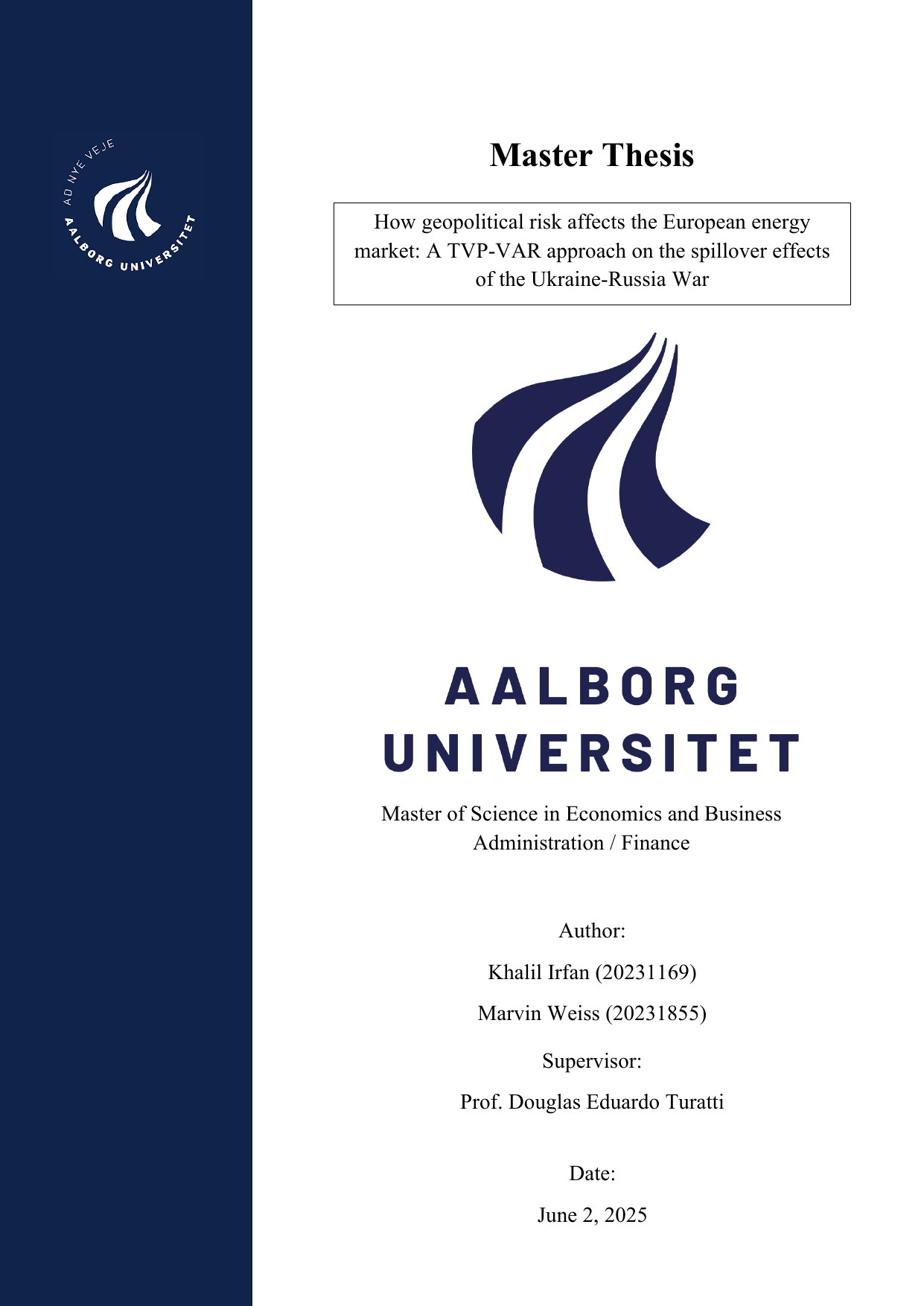
How geopolitical risk affects the European energy market: A TVP-VAR approach on the spillover effects of the Ukraine-Russia War
Authors
Term
4. semester
Publication year
2025
Submitted on
2025-06-02
Pages
80
Abstract
This thesis investigates the impact of geopolitical risk, specifically the Russia–Ukraine war, on European energy markets. Using a combination of time-varying connectedness analysis, GARCH-based volatility modelling, and predictive linear regression, we explore how geopolitical shocks affect return dynamics, volatility transmission, and short-term predictability across both stocks and commodity assets. Our analysis covers a sample of affected energy assets and a robustness group of unaffected assets, allowing for a comparative evaluation of conflict-driven versus broader market effects. The results show that volatility connectedness increased significantly following the outbreak of the war, with energy firms and commodities acting as primary transmitters of shocks. Return connectedness also rose, though to a lesser extent, and was more irregular in nature. In contrast, unaffected assets displayed stable, low levels of connectedness and showed minimal sensitivity to geopolitical developments. Predictive regressions revealed that lagged returns held consistent forecasting power, while connectedness measures, GARCH volatility, and the Geopolitical Risk Index provided limited predictive value for short-term returns. Overall, the findings suggest that geopolitical risk reshapes market interdependencies more through volatility and structural connectedness than through return direction. The study highlights the importance of distinguishing between risk transmission and return predictability and contributes to a growing body of work on how geopolitical uncertainty influences financial systems in real time.
Keywords
Documents
